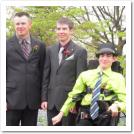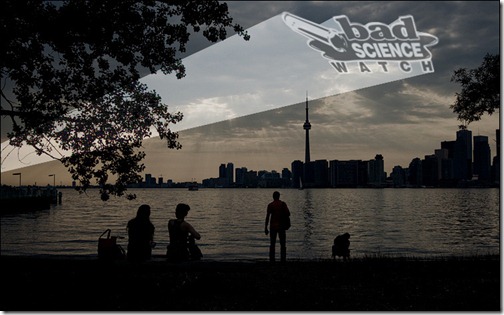One of the projects that I’m working on right now is to raise awareness and recruit teams for the upcoming World Cerebral Palsy Challenge in support of the Cerebral Palsy Association of British Columbia.
The Challenge started two years ago among a network of CP associations in Australia. It was so successful that they’ve now essentially franchised the fundraiser to associations in Canada and across the United States.
The premise is very simple and is explained best by their promotional video:
Basically, just get active and promote a healthy lifestyle while raising awareness and money for children and adults living with cerebral palsy. Participants register as teams of 4 for $25/adult or $10/child and track their daily steps through the interactive website. We send everyone a pedometer and have a conversion chart in case you do other activities (running, weights, bocce ball, etc.). The Challenge runs from World CP Day, September 4th, until October 2nd.
For those teams that register here in BC, I’ve scored a few prizes for you:
- Every team that enters by August 5th will be entered to win a pack of four tickets to either the August 13th or August 25th Vancovuer Canadians baseball games.
- The top individual fundraiser at the start of the Challenge, Sept. 4th, will receive 2 tickets to any 2012 BC Lions (the 2011 Grey Cup Champions) home game.
- The person who takes the most steps during the Challenge will win a BC Lions hat, autographed by running back #33 Andrew Harris.
 Cerebral palsy is a physical disability that limits movement. It varies from very minor cases (a slight difficulty walking), to severe cases where even eating and breathing are difficult. My brother’s case falls somewhere in the middle. He is unable to walk, but he can talk and play video games just fine.
Cerebral palsy is a physical disability that limits movement. It varies from very minor cases (a slight difficulty walking), to severe cases where even eating and breathing are difficult. My brother’s case falls somewhere in the middle. He is unable to walk, but he can talk and play video games just fine.
CP is caused by damage to the brain that occurs during pregnancy, birth, or in the first three years. It’s not degenerative or contagious, but it is a lifelong condition.
The Cerebral Palsy Association of BC describes itself as follows:
The Cerebral Palsy Association of British Columbia was started in 1954 by a group of parents who wanted to assist their children living with CP to reach their maximum potential within society. Today we are an independent charitable organization governed by a volunteer Board of Directors. We provide support, education, and information throughour BC. Our Mission is:
- to raise awareness of Cerebral Palsy in the community;
- to assit those living with Cerebral Palsy to reach their maximum potential; and
- to work to see those living with Cerebral Palsy realize their place as equals in a diverse society.
I hope you’ll register a team today or, at very least, sponsor my individual campaign.
